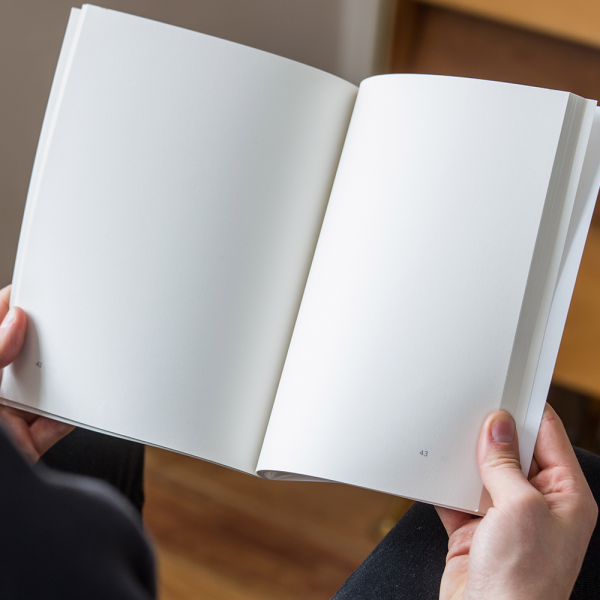Shitstorm in a Teacup
There are plenty of people who claim not to be morning people, they say things like “I’m not a morning person” as they slouch through their morning meetings or “I’m useless without my coffee!” when another colleague begins to harp on about their 5 a.m. spin class. Whenever I hear someone profess their lack of morning coherence, I feel like bellowing “No one here likes mornings Karen! No one is dreaming of their commute or reading poorly written emails by some no-mark in accounting!” but I don’t, because it’s morning and I really don’t like them mornings.
My wife agrees with my assessment of mornings, but only to a point. I prefer the deep, foreboding silence of a workday morning, my wife prefers the gurning idiocy of the Antenne Bayern breakfast show. Thankfully, my wife listens to the radio in the bathroom, with snippets occasionally breaking my 1000 yard stare out the kitchen window. Although I try not to listen, I can’t ever seem to zone out the tired comedy routines and bizarre playlists that come waffling from the other room, interspersed with my wife’s desperate negotiations with her hair. I may hate the radio show, but it can be useful. I find hearing German in the morning helps, as I’m not the most confident speaker and I spend most of the day speaking English. Also, it can be a good place to find contrasting examples between Germany and other countries. For instance, Germany’s relationship with swearing.
How, you may ask, has a commercial radio station opened this door into the German psyche? Well, quite simple really, one song in fact: Frank Zappa’s Bobby Brown (Goes down). I had never heard this song anywhere, let alone on morning radio, until I moved to Germany. This is not surprising. Outside hardcore Zappa fans, or the countries of Sweden, Switzerland, Norway, Austria and Germany (where it was most successful on release in 1979), most people will not have heard it. British and American radio stations refused to play it, due to its sexual content and sweary lyrics. If you’ve never heard it, stop reading and take a couple of minutes to take it in, it’s a real…thing.
No matter what your opinion on the song, it’s quite a lot to take in when you’re eating your Weetabix. On this evidence, Germany appears to care little for radio friendly song edits, bleeping or exasperated calls to “think of the children”. Whether the song has obvious or not so obvious swear words in the lyrics, it gets played. In full. It could be argued that since a lot of the music on German radio is in English, it doesn’t really matter that some swear words get out in the cold morning air. Who really notices, who’s really paying attention (well, except for weirdos like me)? It’s a fair argument, except newspapers are equally happy to print the words “Shitstorm” in big bold letters on their front pages. That’s kind of a hard thing to miss. The word became popular in 2012, when Chancellor Angela Merkel said it during a press conference. Germany quickly fell in love with the word “shitstorm” and it soon entered the German dictionary (Duden) in 2013. It’s a totally acceptable everyday word, which for most native speakers of English, is bizarre.
The reason for this is that Britain and America have quite different approaches to swearing. Like most things in Britain, swearing is wrapped up in the complexities of social class, relationship dynamics and the North/South cultural divide. It’s seen as generally impolite, accused of showing a lack of vocabulary (A very British way of saying you’re an idiot) and only seen on TV after the watershed. The settings and environments where swearing is acceptable can be confusing, even for the British. Example 1: While watching a football match, I once saw a small child point at the away fans and loudly declare “You’re all fucking inbred”, everyone laughed. Example 2: While watching a rugby match, I was asked not to swear so much by a stranger when I quietly turned to my friend and said, “The ref is shit”. Like most things in British culture, it’s a minefield.
The Americans have similar influences, such as class and regional divide, but they also have a generalized stranger politeness aspect, whereby most Americans are super polite when you first meet them. It’s only after you get to know them that you learn they can string swear words together like so much 4th of July bunting. I certainly noticed a stronger East/West swearing divide when I was in the US, with cities like Boston and New York seeming more comfortable with casual swearing than Seattle or San Francisco, but that’s hardly scientific.
Both countries differ strongly from Germany, especially with casual swearing. The most common swear word to hear in German is “shit” or “Scheiße”, which is probably why “shitstorm” became so popular. It’s ubiquitous. People exclaim it loudly in the bakery when they spill their coffee, old folks throw it in casually as a comment on the general state of the world, and small children scream it at the top of their lungs as they play in the park. With so much general usage and acceptance, it’s basically not a swear word. This can be confusing, given it’s translation in English. The very idea of children swearing seems such a jarring concept for the British and Americans, given that most parents from these regions enact no-swearing rules on their young children for fear they might drop an F-bomb in a crowded area. There is certainly a number of no-go swear words in Germany, “shit” just doesn’t seem to be one of them. That being said, English is a bit of a loophole. German speakers seem more than happy to turn the air blue with some of the more choice English language descriptors.
British and American swearing self-censorship has little comparison in Germany, at least from what I can see over the last eight years. Of course, this different approach can cause conflict. It’s interesting to note that German parents seem way more concerned whether a person crosses the pedestrian crossing on a red light in front of their children, than they are about swearing around their offspring. Perhaps actions or behaviors of others are more of a concern for German parents, than the influence of some rude words. Most of the young parents I know happily swear in English in front of their small children, even when speaking German, safe in the knowledge that they probably don’t understand. If they do, or if they start actively using it, well then, the child is simply learning another language. This is understandable. For speakers of other languages, using vernacular or certain words with native- speakers is fun. It’s like being part of the club.
Obviously, there is a psychological distance between non-native speakers of English and English language swear words, which means they have less power and seem more, for want of a better word, exotic. These essential differences in feeling about language, as well as the looser rules around certain words, means there is always a possibility of conflict between the British and the Americans, and the Germans. This can be easily resolved with a little forethought. To the Germans I would suggest leaving the fun swear words in your pocket when you’re around native English-speaking strangers or parents. To those English speakers , I would advocate for a little more tolerance of our swear happy German brethren. After all, the success of English as the global language means it’s subject to change, and our region specific behavior/language rules only stretch so far.








